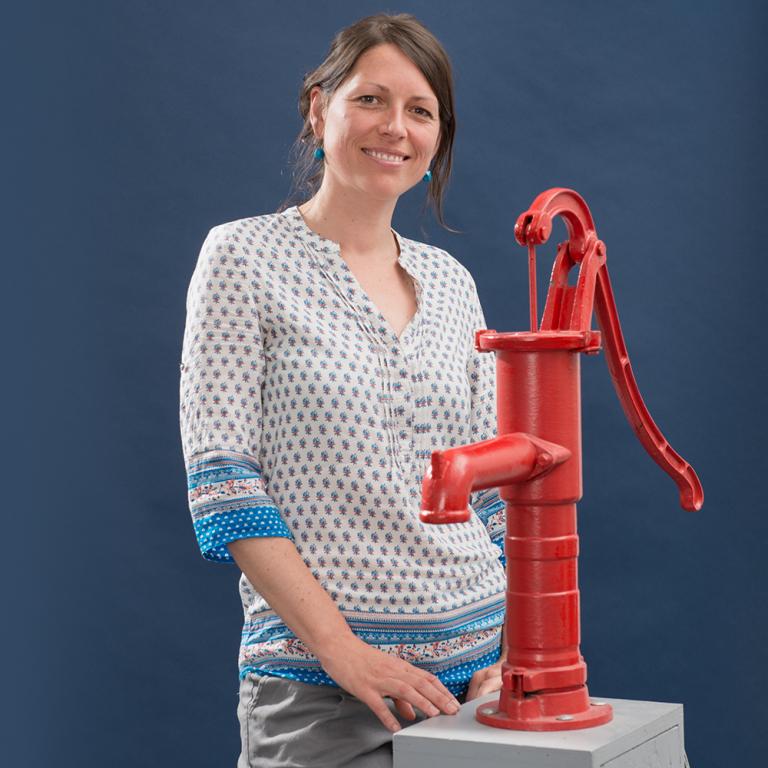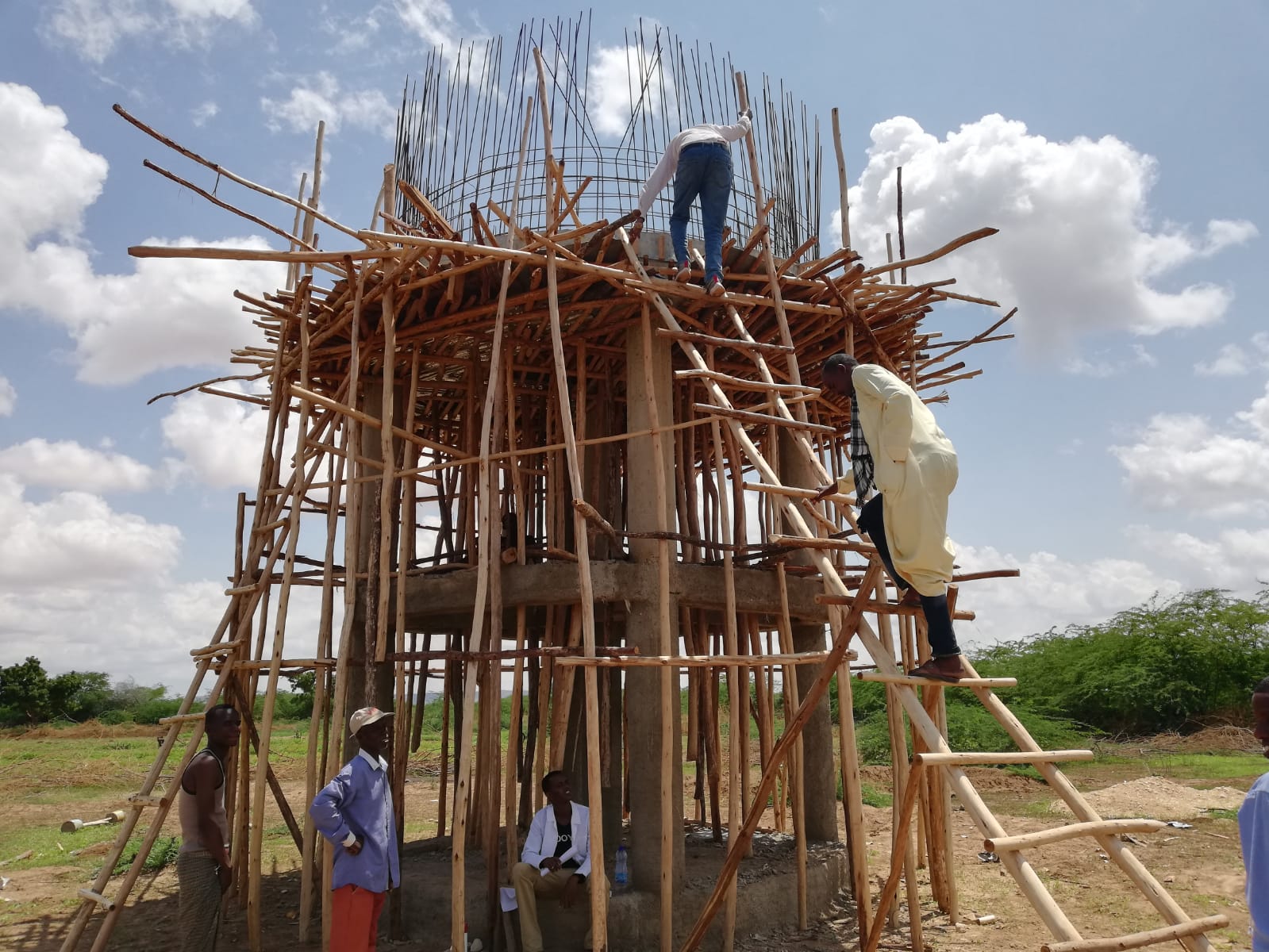The ultrafiltration plants are part of the supply systems that arche noVa designed for the municipalities in cooperation with its Ethiopian partner organization OWDA. The project team is currently constructing high stands for the water tanks and installing pumps. In the future, the dirty river water will be pumped into the tanks, from where it will flow through the filter system to the tapping stations for the people in the village. There they’ll purified drinking water.
No clean drinking water on the Shabelle River
The Shabelle River is located in the increasingly drought-prone Somali region of Ethiopia and is the only river in the region that carries water all year round. In recent years, more and more families have settled on its shores, who used to live as nomadic shepherds, moving around with their herds. Now they have settled down in order to be able to supply themselves and their animals with water more easily.
However, this water is heavily polluted and causes water-induced diseases with severe consequences, especially for children, pregnant women and the elderly. Because there is hardly any medical care in the remote villages.
Excavation of pipeline trenches contributed by village people
In November 2018, our partner organization carried out a detailed assessment in the Kelafo project area and selected four villages with the highest demand. The team from OWDA and arche noVa established close links to all participating communities. In this way, the population was informed and mobilized about the necessary personal contributions. Today, the work has already been completed. In each village, the pipeline trenches of several kilometres were excavated. arche noVa provided the necessary tools, such as axes, hooks and shovels.
arche noVa always pays attention to involving the local people into the projects from the very beginning. This is an important contribution to ensuring that locals feels responsible for the future maintenance of the facilities created in the project.
Also the construction measures are accompanied by hygiene education by mobile hygiene teams and training by volunteers in order to promote people's health.
This project is made possible by the friendly support of the Wilo Foundation.














